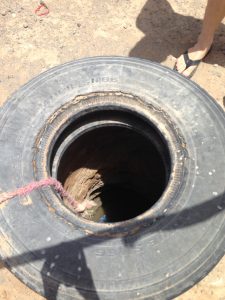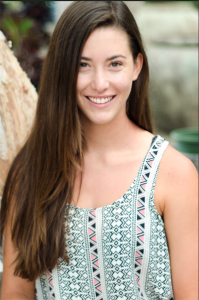A New Perspective on Water
“Where am I going to get my water today?”
“Is there going to be any in the well?”
“How far will I have to walk?”
“Have any chemicals seeped into the water?”
These are not questions most of us in America have to think of or ask ourselves on a day-to-day basis. We assume what comes out of the tap is safe, cheap, and easily accessible. In Morocco, these ARE questions people would ask themselves, and the answers they found were not always what they needed.
When my fellow ASU student and I got to Morocco in May 2015, we were told not to drink the tap water. “Don’t brush your teeth with it. Try to avoid vegetables that were raw and washed with it. Only drink bottled water.” This is what we did and we were lucky we had the means to do so; meaning we had the money and accessibility to purchase the bottled water on a daily basis. Many people in Morocco did not have access to the infrastructure to drill underground, having to solely rely on what was available for surface water, and sometimes, the surface water was scarce. I learned while on the trip, during meetings with farmers, educators, and other government officials, that, despite policies and efforts surrounding improving accessibility and cleanliness of water, there were high inequities as to whom these policies were truly helping.
 The most eye-opening experience occurred when we went to visit the Nomads living in a southern area of Morocco. They had a well built relatively close to where their housing was, which was a benefit compared to some other locations. Still, there were constant worries that affected the people of this home, such as if an animal could have fallen into the well and died (contaminating the water) or if they would have to dig deeper today to have access to water. Could they drink the water right from the well or would they have to first boil the water? Witnessing this added a new dimension to my understanding of global problems and inequities between rural and urban areas.
The most eye-opening experience occurred when we went to visit the Nomads living in a southern area of Morocco. They had a well built relatively close to where their housing was, which was a benefit compared to some other locations. Still, there were constant worries that affected the people of this home, such as if an animal could have fallen into the well and died (contaminating the water) or if they would have to dig deeper today to have access to water. Could they drink the water right from the well or would they have to first boil the water? Witnessing this added a new dimension to my understanding of global problems and inequities between rural and urban areas.
Water conservation is what drove me towards sustainability three full years ago when I began my undergrad studies. Now after witnessing first hand what is happening in my home state of California and having a new global perspective, I want to redefine my future education goals even farther. As I prepare for law school next year, I want to focus on water policies and work to make them beneficially effective in all areas the policies affect.


